Understanding geopolitics and Putin’s war of aggression
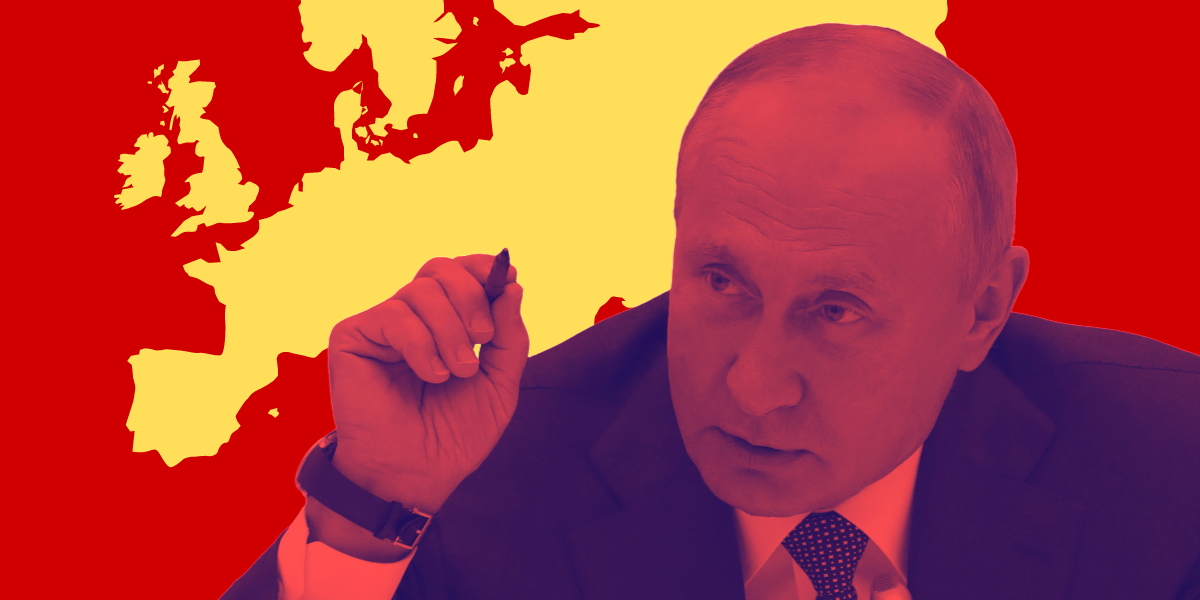
Geopolitics – An introduction
Countries fight. Many of these wars and disputes lead to countries collapsing and other countries being born. Sometimes the people in or outside these new countries do not like where the borders were drawn which leads to more conflict, which leads to more countries falling and others being born, and the cycle continues.
While I would advocate that the borders in certain areas do change, it is important to understand; there will never be a time when everyone, everywhere is happy about what countries are where or where the borders lie. This is the essence of geopolitics and international relations. These hotspots change, and some places that were previously unstable and fragile are now stable and vice versa.
Some territorial disputes or tensions are between independent sovereign states (for example between India and Pakistan) and others are unrecognised states or separatist regions attempting to gain independence from independent states. Undoubtedly there is overlap between these two scenarios.
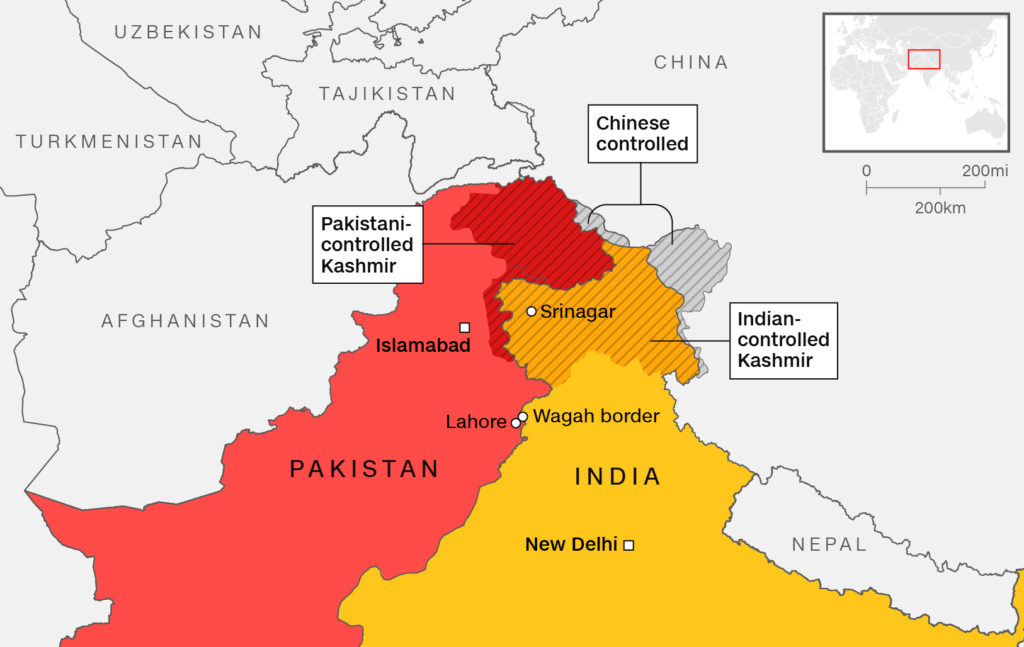
Image: CNN
For example, let’s say hypothetically that China and Ireland are geopolitically opposed to each other, and “The People’s Republic of Kerry” is attempting to break away from the rest of Ireland. It would be in China’s interest to support this independence movement through its media, its military and its economy. The Supreme Leader Michael Healy-Rae would then take control and weaken the influence of the Irish government and in turn help China (what an image!).
Along with the aforementioned international relations, other layers to geopolitics are:
- Human geography
- Physical geography
Human geography deals with humans and their relationships with communities, cultures, economies, and interactions with the environment by studying their relations with and across locations.
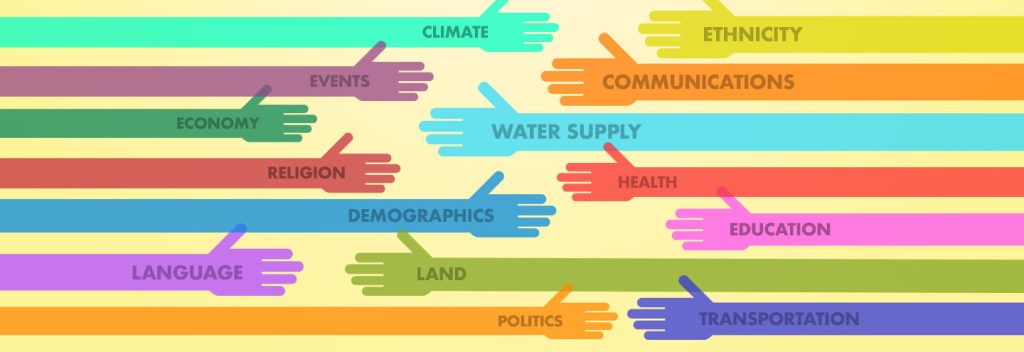
Image: secretsmartiq.com/ap-human-geography/
If we go back to our example of The People’s Republic of Kerry, let’s imagine that Kerry has a distinct economy (we’re far more productive down here in the Kerry), different culture (objectively better at football here), demographics, history and is politically different (We have Healy-Raes) from the rest of the country. These differences can play into the separatist movement and create a separate identity.
The physical geography part of geopolitics not only encompasses the effects of mountains, rivers, lakes, valleys, seas, and so on, but also other valuable natural resources like gas and oil.
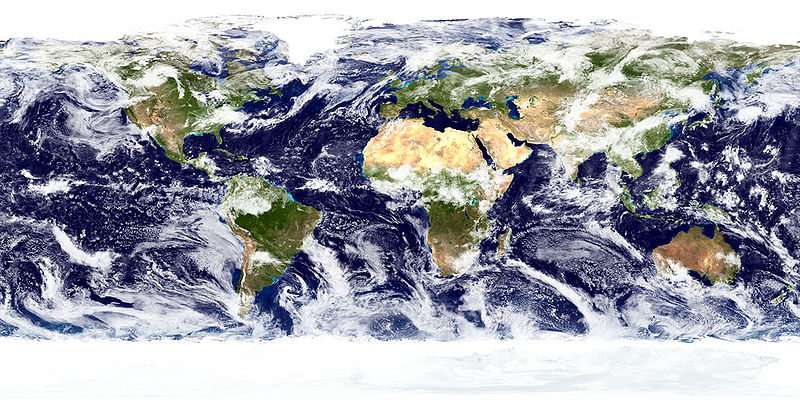
Image: Reto Stöckli (land surface, shallow water, clouds). Enhancements by Robert Simmon (ocean colour, compositing, 3D globes, animation)
With Kerry having such valuable natural resources (some of the best natural views in the world I’ll have you know) it is in Ireland’s interest to keep it, but Kerry might want to keep these for itself, and whoever’s backing Kerry against Ireland might want to benefit from these.
So what should you take from this? Well, obviously that The People’s Republic of Kerry should revolt in a glorious revolution against ‘them above in Dublin’!
In all seriousness, understanding geopolitics and past imperialism (and present imperialism), is crucial to understanding how countries interact and the relationship between them.
Speaking of present imperialism…
Putin’s rationale and goals from his war of aggression
Everyone and their dog has heard about the ongoing invasion of Ukraine, and to see why there are problems there, one has to look to geopolitics.
Russian President, Vladimir Putin thinks the cards are stacked in his order in terms of:
- The internal politics his geopolitical foes (his perception of a divided EU and rising isolationism in the US)
- The economy (Europe relies on Russia for about 40% of its natural gas)
- The history (Ukraine was part of the Russian Empire and Soviet Union; the dissolution of which Putin has called “the greatest catastrophe of the 20th century”)
- The demographics (around 38% of those in Donetsk and 39% of those in Luhansk are ethnic Russians and both are majority Russian speaking areas, although it should be mentioned, they are both majority Ukrainian areas.
He also relied on the excuse of western NATO expansion, and calling President Zelensky’s administration “illegitimate”.
One may debate the views above, but the important thing is that this is what Putin really thinks. He is acting in the Russian state’s interest (not necessarily the people’s interest mind you), by attempting to expand its influence and further encroach on Europe.
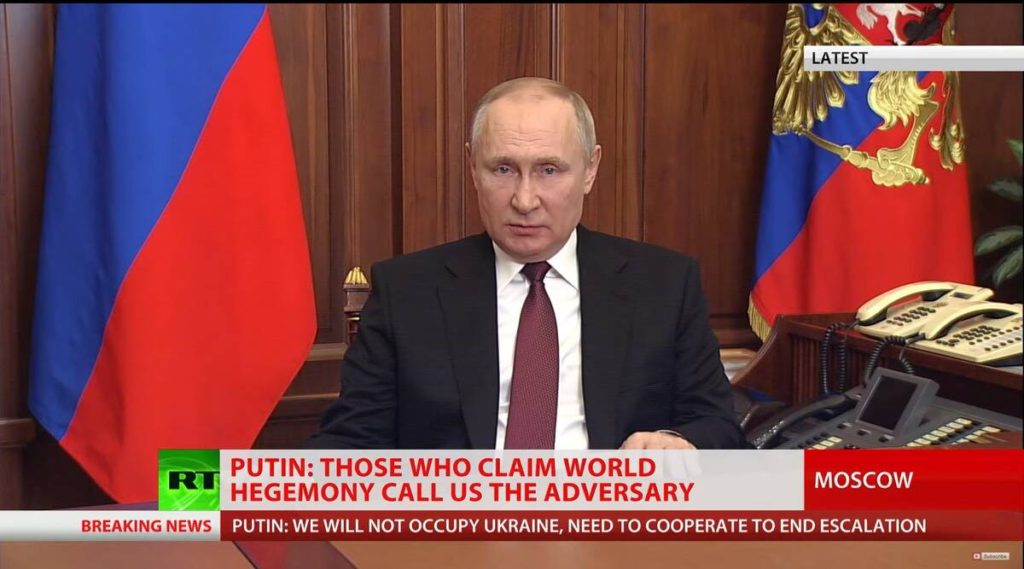
Image: RT
Putin is clearly trying to bring an Iron Curtain down again, dividing Europe between West and East. For a while, Putin had no true allies, or influence in Eastern Europe. However, with a combination of The President of Belarus, Alexander Lukashenko having nowhere to turn but Putin for help when it came to putting down protests against his rule, and Russia waging a war of aggression against Ukraine, Putin is currently gaining ground. It does however look like this could be the beginning of the end of the Putin era. I will get into this my next article, by looking at the Russia of today and the similarities with the rise and fall of Russia’s historical empires.
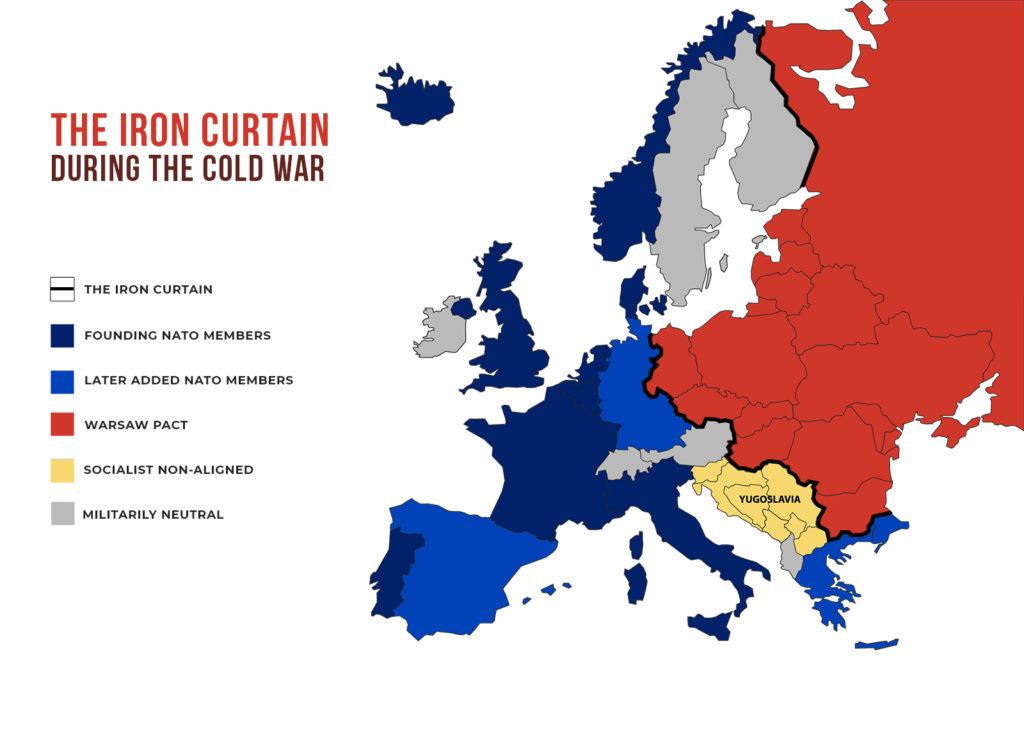
Image: https://eufactcheck.eu/factcheck/false-croatian-president-claims-she-was-born-behind-the-iron-curtain/
Aside from geopolitics, we all need to stand with the Ukrainian people against the invasion and Putin’s kleptocratic dictatorship. Be informed, protest and give to charities helping the victims of this war if you can.
We as young people and transition year students should do our best to understand geopolitics so that we have the tools to create a better future for the people of Ireland and the world. After all, we only have to look to the North to see the closest example of a previous geopolitical disaster, that has still not fully healed.
